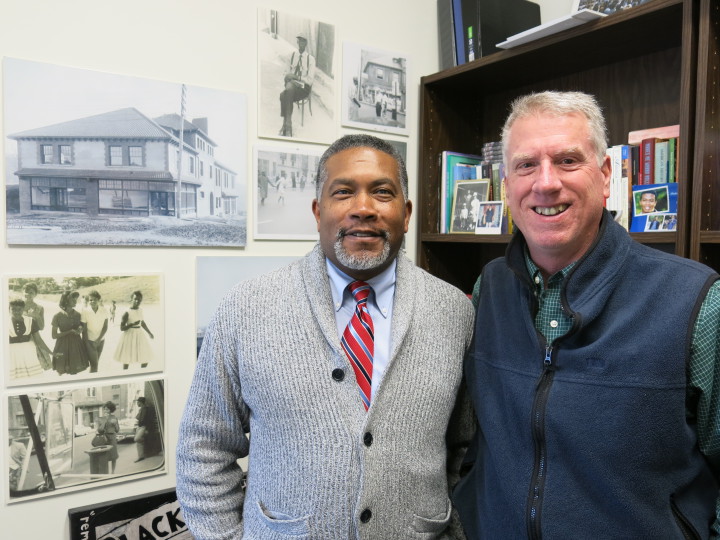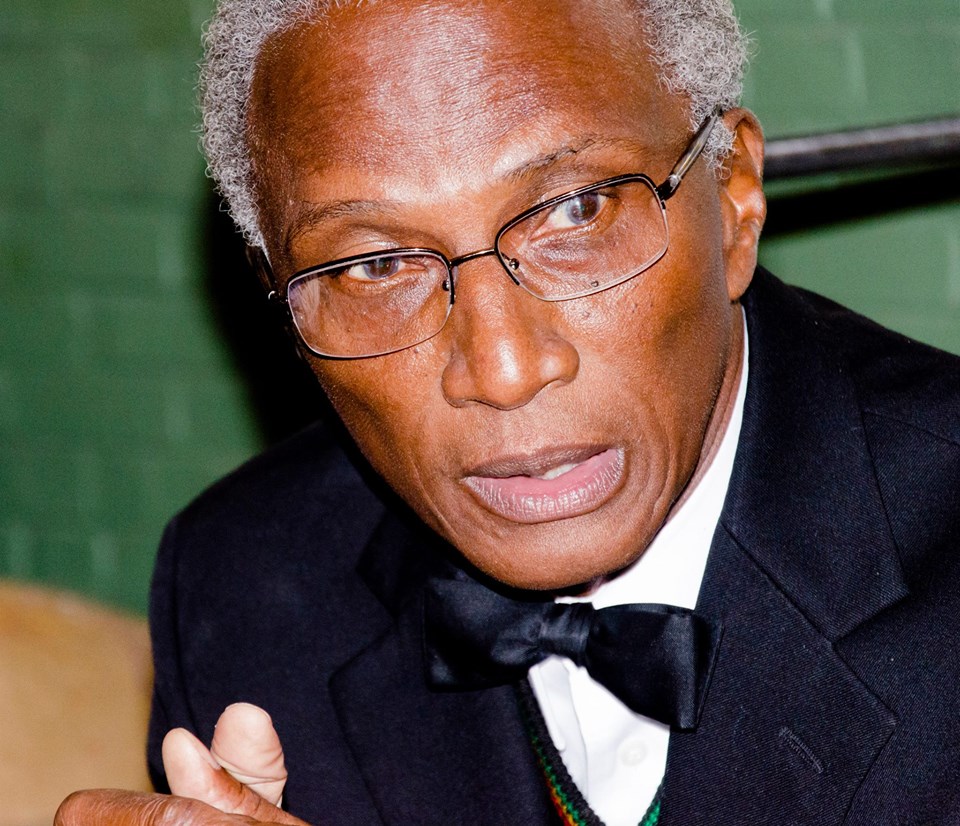For the longest time, African-Americans simply did not exist in Western North Carolina. Nor, for that matter, did they exist in the greater part of the Appalachian region. These statements, of course, are patently false, but for much of the history of African-Americans in Appalachia, this was the accepted narrative.
That is, until the 1985 publication of Blacks in Appalachia. The anthology, says UNC Asheville history professor Darin Waters, made a lasting impact in the field: “It really initiated the effort by scholars to explore the African-American experience in this region of the country.”
On Thursday, Feb. 22, UNCA will host a free lecture, “From the Mountaintop! The Civil Rights Movement in Appalachia.” William H. Turner, professor emeritus at Prairie View A&M University and co-editor of Blacks in Appalachia, will be the featured speaker. “He really is the pioneering scholar on African-Americans in Southern Appalachia,” Waters says.
Waters, along with Dan Pierce, fellow UNCA professor of history and National Endowment of the Humanities Distinguished Professor, co-organized the event.
‘Fill that void’
For Turner, his interest in uncovering the region’s past was a personal matter. Like his mother, the now 71-year-old historian was born and raised in Harlan County, Ky. Meanwhile, his father grew up in southwest Virginia. As a student at the University of Kentucky in the mid-1960s, Turner discovered there weren’t many publications concerning African-Americans in the the Appalachian region. “The long-standing impression was that there basically weren’t any black people of any significant numbers in the mountains of the South,” he says. “I took it upon myself, along with some other people I knew, to try and fill that void.”
Turner’s UNCA talk will include a survey of his research, with a specific look at how the region’s deep and rich African-American history ultimately led to the civil rights movement. From the first African slaves brought over by Spanish conquistadors in the 16th century to the earliest newspapers devoted to the abolishment of slavery, from the Underground Railroad to the influence of Dr. Carter G. Woodson — the “Father of Black History” — Turner will highlight the area’s key historical events and figures.
The lecture will also spotlight research from Appalachian State University graduate Patrick S. Parker’s 2016 thesis, “Appalachian Activists: The Civil Rights Movement in Asheville, NC.” Parker’s work spans 48 years of community activism, from 1917-1965. In his thesis, Parker writes that the efforts of these activists “furthered the social and political standing of Asheville’s black community by employing a unique negotiation strategy that was influenced by their town’s burgeoning tourism industry.”
Unearthed materials

Pierce points to pieces like Parker’s as a continuation of Turner’s original efforts to bring the history of African-Americans in Appalachia to the forefront of the region’s overall narrative. He says the progress in this particular field of study has improved drastically in the past 10 years.
He remembers students approaching him about similar projects prior to that time. “I’d say, ‘Well that’s a great topic, but the sources just aren’t available to do that,’” Pierce says.
But in the past decade, there has been an influx of discovered and rediscovered materials, Pierce explains. One of the major game-changers has been the digitization of newspapers. Another great resource has been the Freedmen’s Bureau records, the government agency that was brought in after the Civil War to assist the South’s adjustment from slave to paid labor.
In Asheville, Pierce also notes the Biltmore Estate archives as a resource. Because of George Vanderbilt’s employment of local black labor during the home’s construction, Pierce says the property has “one of the richest repositories of materials related to African-Americans in Western North Carolina.”
Resources like these, says Pierce, were once overlooked or unavailable, but have since become crucial assets in filling in parts of the region’s past. “That’s been one of the neatest things to happen in recent years,” he adds. “It’s such a rich field of study, where once it was kind of a dead end.”
Destinies intertwined
The necessity and importance of this study, says Turner, goes beyond historical significance. “Whether we like to admit it or not, whether we know it or not, our destinies are really intertwined,” he says. “No people, particularly in the United States, should think that their stories are more important than somebody else’s stories, or to disregard the stories of other people. Those [stories] are so important in terms of our children and our grandchildren avoiding the mistakes that we have made.”
With white supremacy again in the national conversation, Turner sees a greater need for a deeper understanding of our country’s past. “We’re having to explain some of the same things, over and over and over again,” he says. “And so the history becomes one of the ways we can set the record straight and understand that what people are doing today is intricately tied to things that went on yesterday. And that we can envision a new tomorrow, once we come to grips with what we did before.”
WHAT: “From the Mountaintop! The Civil Rights Movement in Appalachia”
WHERE: Humanities Lecture Hall, 1 University Heights, UNC Asheville. avl.mx/4mg
WHEN: 6 p.m. Thursday, Feb. 22. Free



Before you comment
The comments section is here to provide a platform for civil dialogue on the issues we face together as a local community. Xpress is committed to offering this platform for all voices, but when the tone of the discussion gets nasty or strays off topic, we believe many people choose not to participate. Xpress editors are determined to moderate comments to ensure a constructive interchange is maintained. All comments judged not to be in keeping with the spirit of civil discourse will be removed and repeat violators will be banned. See here for our terms of service. Thank you for being part of this effort to promote respectful discussion.